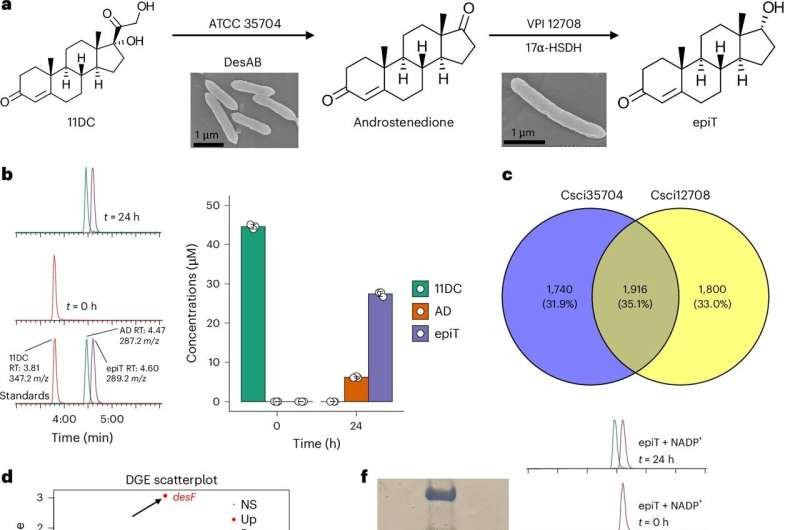
A study led by Cancer Center at Illinois (CCIL) member Jason Ridlon, associate professor of animal sciences in the College of Agricultural, Consumer and Environmental Sciences (ACES), has revealed that bacteria in the urinary tract can turn corticosteroids into androgens—hormones that help prostate cancer grow. The research is published in Nature Microbiology.
Ridlon led the microbiological research and hypothesis development while Joseph Irudayaraj, professor of bioengineering and CCIL Associate Director of Shared Resources, developed the microbial bead technology used in the experiments.
Ridlon began this work in 2015, hypothesizing that gut and urinary tract bacteria contribute to hormone-driven cancer. “When we obtained our first isolate that generated androgens, we thought, ‘Eureka!’ The hypothesis has some plausibility,” he said. The bacteria converted drugs such as prednisone used in androgen-deprivation therapy into androgens, stimulating cancer cell growth.
The team identified two bacterial genes, desF and desG, that make hormone-like compounds. One big surprise was that a hormone called epitestosterone, thought to block cancer, actually caused prostate cancer cells to grow even more.
They also studied Propionimicrobium lymphophilum, linked to prostate cancer, which may contribute by producing androgens.
“Bacteria in our bodies are an overlooked part of our hormone system,” said Ridlon. His Sterolbiome Lab focuses on how microbes affect steroid hormones. This could lead to new treatments, such as drugs that block harmful bacterial hormones.
Irudayaraj said, “When we developed the microbial bead technology, we did not realize the broad impact of its applications. Saeed Ahmad, a bioengineering doctoral student in our team, however, was instrumental in extending the methods to encapsulate anaerobic bacteria in the beads–this formed the basis for all co-culture studies to assess the role of these class of microbes on prostate cancer proliferation.”
Irudayaraj also noted that the team’s work on prostate cancer can be extended to other hormonal cancers, such as breast cancer.
“It’s nice to know that our work is recognized by highly regarded experts in this field. This also highlights the importance of collaboration across disciplines,” Ridlon said about the publication.
Ridlon shared that the team is now focused on mapping additional bacterial pathways that metabolize steroids. “We’re in the process of describing these new pathways. More will follow when these are published.”
“We have shown that these beads can withstand pH variations in the gastro-intestinal tract. Our next steps are to make several cocktails of these steroid modulating microbes for experiments in animal models, taking it a step closer to translation,” added Irudayaraj.
More information:
Taojun Wang et al, An expanded metabolic pathway for androgen production by commensal bacteria, Nature Microbiology (2025). DOI: 10.1038/s41564-025-01979-9
College of Agricultural, Consumer and Environmental Sciences at the University of Illinois Urbana-Champaign
Citation:
Urinary bacteria may help prostate cancer thrive through hormone changes (2025, June 3)
retrieved 3 June 2025
from https://medicalxpress.com/news/2025-06-urinary-bacteria-prostate-cancer-hormone.html
This document is subject to copyright. Apart from any fair dealing for the purpose of private study or research, no
part may be reproduced without the written permission. The content is provided for information purposes only.

